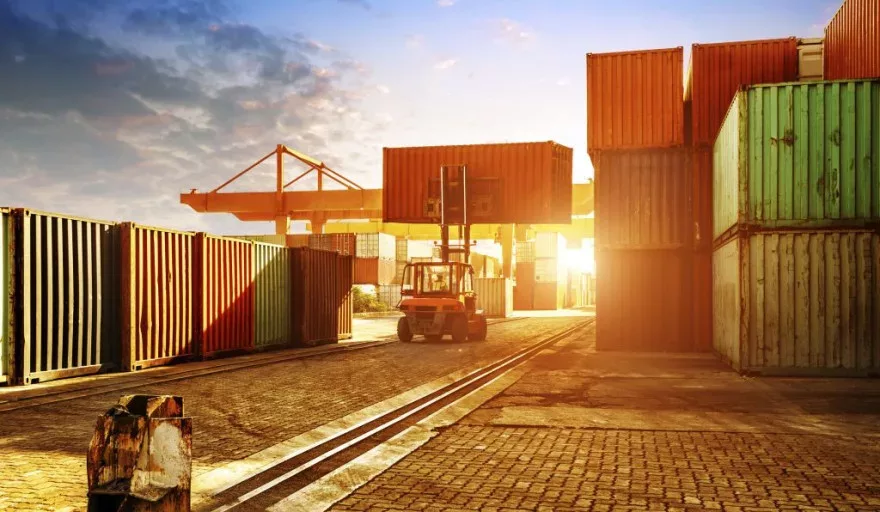Transparency, security and reliability of individual containers are factors that are incredibly difficult to verify in the world of international goods transport.
In hope of resolving this dilemma, an EU-funded research project has pinpointed some of the reasons driving the trend, and has come up with suggestions (in practice and policy) that could reverse it.
Known as WALQING or “Work and Life Quality in New and Growing Jobs” the project studied the links between new jobs being created throughout Europe, a wide range of working conditions, and the resulting quality of work and life for employees who fill these jobs.
The findings show that about half of the 16.67 million new jobs created between 2000 and 2008 in the EU have problematic working conditions. Low wages, below-average job quality, physically difficult tasks, short-term contracts, precarious employment, and a lack of participation and social integration are among the challenges often faced by the people who fill these jobs.
WALQING’s team of researchers examined five job categories that have grown substantially in recent years and are expected to expand further: waste collectors, office cleaners, builders in “green” construction, mobile caregivers for the elderly, and kitchen workers in catering. The project focused particular attention on vulnerable groups such as migrants and ethnic minorities, certain groups of women, and younger and older workers.
Though they contribute centrally to the quality of life throughout Europe, the men and women in these expanding jobs often have low or unrecognised skills, face industry restructuring and growing competition leading to increasing work intensity and pressure at work, experience restricted possibilities of advancement, and have a limited voice in their workplaces.
“What we have learned is that employment growth does not necessarily create good jobs, and that creating new jobs does not automatically improve job quality,” says project coordinator Ursula Holtgrewe of Forschungs- und Beratungsstelle Arbeitswelt (FORBA), a non-profit research organisation based in Vienna.
“This is an ongoing struggle ensuring that job quality is improved along with job growth,” Holtgrewe says. “In our view, inclusive growth is an empty phrase if you don’t fill the newly created positions with decent jobs,” she adds.
Why is Europe in this position? “We can’t really come up with a complete explanation,” according to Holtgrewe. Among the contributing factors, she says, are increased competition due to globalisation, privatisation and outsourcing by governments, and shorter contracts. This all adds up to more precarious jobs. These forces can increase employee stress, physical and psychological demands. In the case of caregivers for the elderly, this can also affect the quality of care provided to patients.
Additionally, shorter contracts mean that employers are reluctant to invest in upgrading worker skills, new technology and safer equipment, which in turn can increase labour turnover, and health and safety risks. This vicious circle may also rob workers of aspirations of finding more auspicious employment. These forces impair long-term employment prospects, which adds to social insecurity. “If people can’t stay in their jobs, where will they go from there?” Holtgrewe says. “You would much rather have people permanently employed,” she continues.
WALQING found hopeful and positive employment practices in several European countries. In Norway and Denmark, it is more typical for managers and workers to come together to discuss and improve working conditions. In Southern Europe, there is more evidence of individual employer initiatives to improve social inclusion at work.
“In Norway, unions and employer associations have an active interest in establishing and maintaining what they call a level playing field,” Holtgrewe says. Employers try to prevent workers from being undercut by irregular workers and the “black economy.” For example, in the construction and cleaning industries, workers must obtain a registration card that is matched against company registries, which Holtgrewe says helps ensure that all workers are treated according to employment agreements.
In Bulgaria, which has less regulation, managers of waste management companies told researchers that they wished they had an employees’ union to negotiate with, in order to make conflicts more predictable, Holtgrewe explains. In one case, WALQING researchers supported managers and workers in collaboratively improving specific working conditions, such as a lack of on-the-job sanitation facilities.
Comprised of researchers from 10 EU countries plus Norway, Holtgrewe’s team identified a number of best practices designed to improve working conditions and, accordingly, life-long learning and social cohesion. Socially responsible public procurement, a growing trend, should be extended to the national and regional levels across Europe. More workers should be covered by collective bargaining agreements.
Active social partnerships, inclusive employment arrangements, “smart” management strategies, and granting employees more voice should become more commonplace. To help ensure that these solutions improve working conditions, Holtgrewe says the occupational paths, experiences and aspirations of workers need to be taken more into account.
SOURCE: The European Commission Research and Innovation Information Centre

















